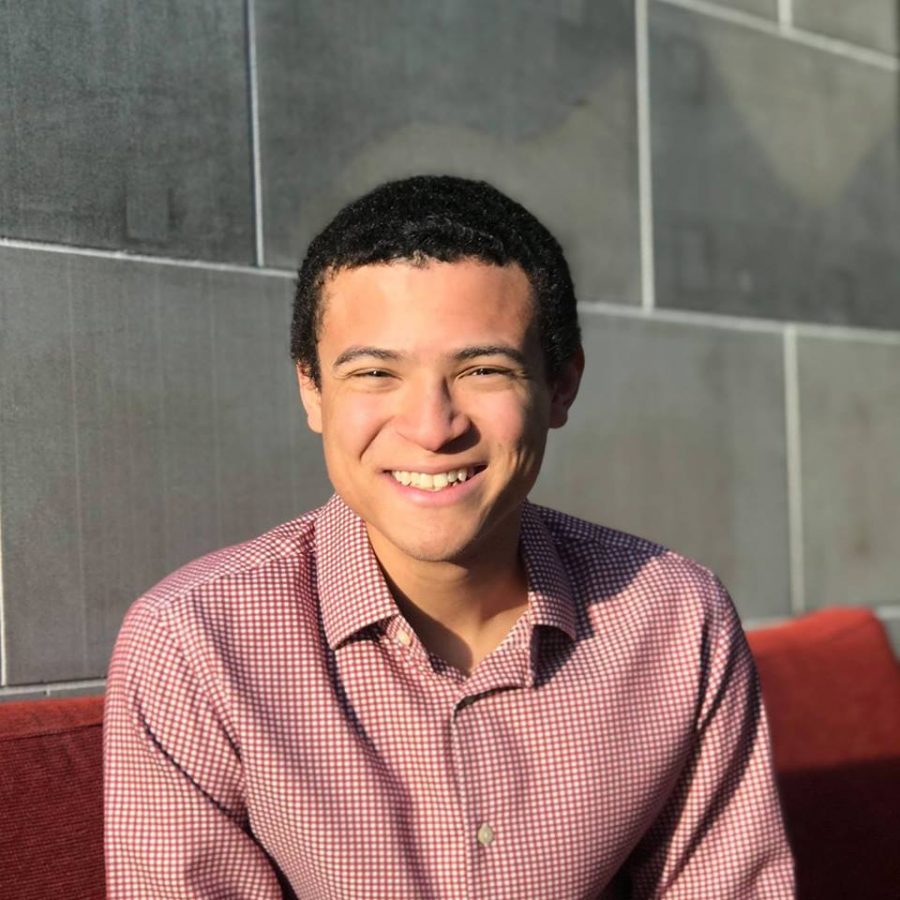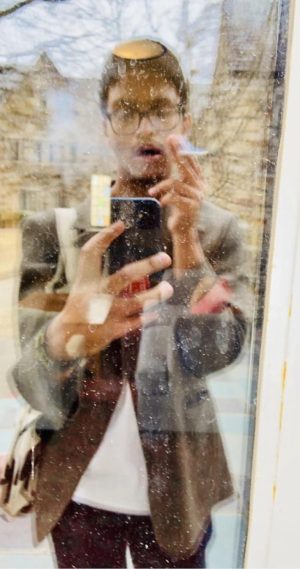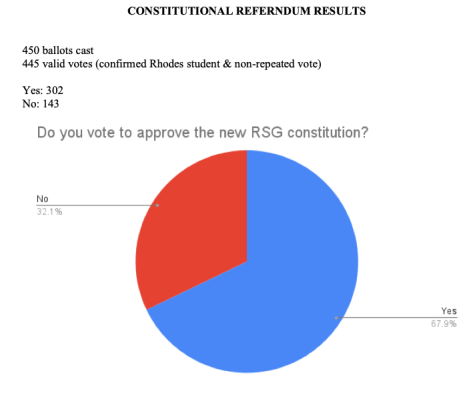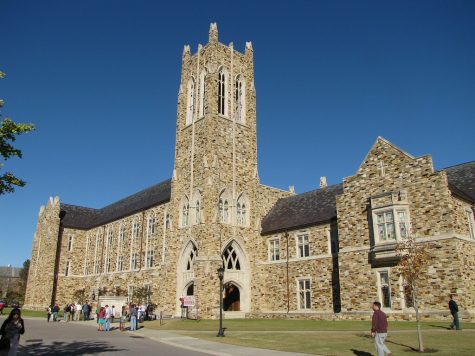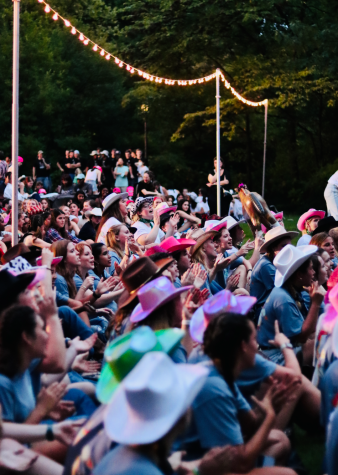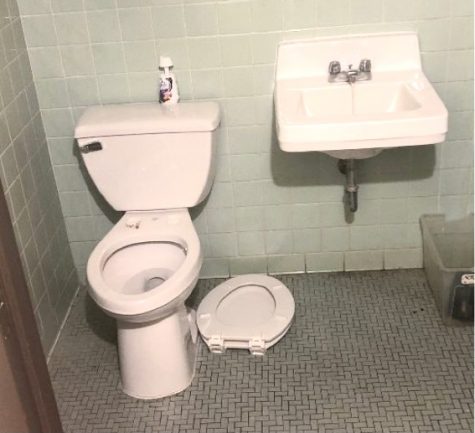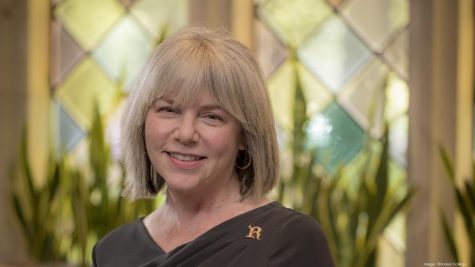Student Body President Tony Eskridge hopeful but pragmatic about his term
October 29, 2019
Student Body President Tony Eskridge ’20 spoke with the Sou’Wester in late August about his agenda for the coming school year, championing better communication between Rhodes Student Government, Rhodes administration and staff, and the student body.
“You can’t just walk into the role of President and immediately believe you have the Rhodes community on your back,” Eskridge said. “[You can’t] just go up to someone and say ‘tell me what’s wrong, I’ll fix it.’” Instead, Eskridge explained that he has been taking the pulse of student life ever since he started attending RSG and Voices meetings, which he began doing long before his first campaign. Since then, he has built trust with student groups by attending their meetings and trying to broaden the base of students he hears from on a regular basis. Thanks to Vice-President Jacob Fontaine ’21, Eskridge said, new policies have been put in place to require all new senators to attend a certain amount of student organization meetings. Eskridge made it clear that RSG’s power to affect change on campus comes from its ability to cite student support.
When asked about his concrete goals for the coming year, Eskridge pointed directly to things he campaigned on; the push for a student center, a sexual health and survivor resource center, and improving the First Year Experience Seminar. “I think space and place are very important,” Eskridge said. Speaking about the “Annex,” a portable building on the east edge of campus currently used for multicultural organization space, he said, “what message are we sending for how we prioritize students of color?” Pointing out the absence of a student center, Eskridge then said, “where is the space where students can exist outside the role of students?”
In his pronouncements, Eskridge seems to fulfill a prophecy of 2018-2019 president Spencer Beckman, who said that his successor would have to be “a champion of the fact that while at Rhodes we are not simply students, but individuals worth more than our academic performance and work.” One gets the sense with Eskridge that the push for a student center might finally be coming to a head. But Eskridge’s emphasis on the power of place did not end with a student center: Eskridge also emphasized the importance of creating a center to improve the sexual health of our campus, both on individual and cultural levels. “For all things sex-related, we have one office, and one administrator whose [full time] job it is to develop these things,” Eskridge said, referring to the Title IX office, headed by Tiffany Cox. Eskridge emphasized that the Rhodes approach to sex education is underdeveloped, and that there are not enough resources for survivors on campus. For example, he points to the need for more educational materials and programs giving the issues of consent and rape myths the care and attention they need. “When we’re trying to build an inclusive community where every individual cares about every issue, labelling perpetrators as from one specific group really limits the conversation,” Eskridge pointed out, referencing the narrative that sexual assaults are always perpetrated by men in Greek Life. Eskridge also emphasized that having a sexually healthy campus involves much more than ending assault, though he was quick to clarify that that should still be the priority of the Rhodes community.
When asked how he planned to improve the First Year Experience Seminar, Eskridge responded with optimism, explaining that he’d already brought his cabinet to meet with President Marjorie Hass and her cabinet to discuss goals for the year, and that the improvement of FYS is something they will both prioritize. “It’s great that we’re already seeing eye to eye,” Eskridge said. Among the ideas he expressed for improving the seminar were more training for FYS leaders, increased communication between student FYS leaders and RSG, and bringing in student groups and clubs to enrich the curriculum. For example, Eskridge explained, student and faculty leaders in FYS have very little training for their roles and have limited input about the curriculum’s formation and application. Eskridge also noted that the First Year Experience itself goes beyond the First Year Seminar, and that both are in need of improvement.
Closing out the interview, Eskridge spoke about the connection between the Rhodes community and his research on the devaluation of black neighborhoods, as well as what students can do to help him and RSG accomplish their mission. “It’s not just one thing that’s gonna flip a whole neighborhood to being successful,” he said, “It’s not just public transit, healthcare access, or affordable housing […] In that same way, I think about Rhodes. There isn’t just one area.” Eskridge listed several major areas he would emphasize for Rhodes’ to focus on for future investment and improvement: the health of the student body and —in particular— multicultural students, the treatment of staff in the Lair and Rat, employing more —and meeting the needs of current— faculty of color, improved student spaces from dorms to common areas, interdisciplinary majors, and our broader relationship with Memphis. “When you start to think about Rhodes not as just students but as an entire community, then we can, with one voice, advocate for each other,” Eskridge said, following up with a call to action for the student body: that we strive to see our school from as many lenses as possible. “Participate in the process, come to RSG meetings,” he said, adding, “don’t settle; every problem is important.”
Rhodes Student Government hosts meetings every Thursday at 7:00 p.m. in Robertson 110, which are open to the student body



